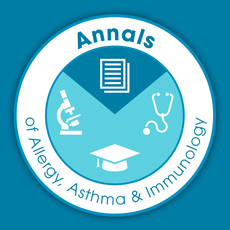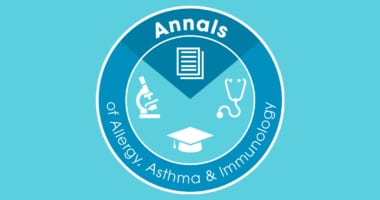 As I write this column for the Insider, I recognize the absolute pandemonium – both personal and professional – that has embraced all of us to one degree or another because of the COVID pandemic. This has disrupted so very much of what we do, yet life does move on. I have been amazed at the continued efforts to produce our journal in a timely fashion. Our submission rate has actually increased, rather than decreased. Our editors and reviewers have stepped up and gone well beyond what might be expected. Our editorial staff has not missed a single day during this entire time of lockdown. And our publisher has maintained schedules in creative ways. To everyone who had had a part in keeping the June issue on time, may I just say a heartfelt “thank you!”
As I write this column for the Insider, I recognize the absolute pandemonium – both personal and professional – that has embraced all of us to one degree or another because of the COVID pandemic. This has disrupted so very much of what we do, yet life does move on. I have been amazed at the continued efforts to produce our journal in a timely fashion. Our submission rate has actually increased, rather than decreased. Our editors and reviewers have stepped up and gone well beyond what might be expected. Our editorial staff has not missed a single day during this entire time of lockdown. And our publisher has maintained schedules in creative ways. To everyone who had had a part in keeping the June issue on time, may I just say a heartfelt “thank you!”
The theme of the June issue is Drug Allergy and Delabeling. This is, of course, an important and exciting time in our practices. We are learning more about recognizing and managing purported drug allergy that turns out to not be due to IgE-mediated mechanisms. We have multiple articles that address this important issue that I hope you will find both interesting and useful in your practice. Our CME review article for the month is from Eric Macy, MD, MS, FACAAI, from San Diego, who discusses the role of stewardship and antibiotic allergy over diagnosis. Antibiotics are commonly used in situations where no antibiotics are indicated. 30% to 50% of ambulatory antibiotic use may be inappropriate. The duration of indicated antibiotic use is often excessive, which leads to more side effects. All antibiotic use can result in adverse reactions, and a fraction of these will be dutifully recorded as an allergy in the electronic health record (EHR). Most EHRs are not well structured to accurately convey information on expected side effects that have occurred, metabolic or other contraindications, dose-related or situational toxicities, personal preferences, clinically-significant immunologically-mediated hypersensitivity, and other reasons a particular patient may not want (or should not be given) a specific drug or type of drug in the future. This article addresses this important issue.
Another very interesting review is from Marianna Castells, MD, PhD, FACAAI, from Boston who discusses the important questions associated with drug allergy phenotypes, endotypes and biomarkers. There are numerous citations looking at categorizing drug reactions by clinical presentation, pathogenesis, biomarkers, and specific desensitization protocols. Current understanding supports the use of a phenotype-endotype-biomarker model for categorizing immediate hypersensitivity reactions. Drug desensitization is a powerful therapeutic strategy that enables temporary induction of tolerance to medications that trigger immediate reactions in specific patients. Immediate hypersensitivity reactions are diverse in presentation and pathogenesis. Drug desensitization is an effective intervention with sufficient evidence to support its more widespread availability.
As always, we welcome comments about these and other features within the pages of the Annals. I hope everyone stays healthy and safe and works toward getting back to normal.
Gailen D Marshall, Jr., MD PhD FACAAI
Editor-in-chief

